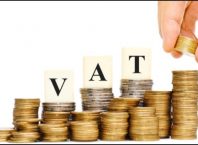
Next time you spot a gingerbread man on a bakery shelf, take a look at how he’s dressed. If he’s naked you won’t pay any VAT.
But if he’s sporting chocolate trousers, then he becomes a luxury attracting 20 per cent tax. This barmy anomaly sums up a tax system strewn with traps for the unwary.
Parents must juggle child benefits; savers and charity donors must remember to claim tax relief; pensioners face baffling codes and must carefully time when they take income if they’re to avoid massive bills.
In the whacky world of taxes, pay rises can be rendered almost worthless as benefits and allowances are accordingly withdrawn.
Inheritance tax rules are so skewed against childless people that Paul Falvey, tax partner at accountant BDO, brands them ‘irrational’.
Last year, the Government took around £500 billion in personal taxes. That’s about £960,000 every minute of every day.
Patricia Mock, tax director at accountant Deloitte, says: ‘Tax gets ever more complicated as new legislation is released. The latest edition of the tax legislation book is more than 18 inches thick.
‘It is not always easy for individual taxpayers to work their way through the maze.’
Untangling the marriage allowance
Let’s start our tour of potholes and loopholes with two allowances that have similar names but different targets and misleading advice on the gov.uk website. First there’s the marriage allowance, which could save a couple up to £230 tax in a year.
For the 2017-18 tax year, we each have a tax-free personal allowance of £11,500 (this rises to £11,850 with the start of the new tax year on April 6).
Currently, the marriage allowance allows a non-taxpaying partner to transfer up to £1,150 of their personal allowance to their basic rate taxpaying partner.
The gov.uk website lays down these conditions: ‘You’re married or in a civil partnership; you don’t earn anything or your income is £11,500 or less; and your partner’s income is between £11,501 and £45,000 (or £43,000 if you’re in Scotland).’
Meanwhile, there’s a separate allowance for couples where one partner was born on, or before, April 5, 1935 — that’s the old married couple’s allowance.
You can’t claim both allowances, but most pensioners who are old enough will be better off going for this one. It’s worth between £326 and £844.50 per year, depending on income.
There’s another wrinkle: if you married before December 5, 2005, it’s the man’s total tax-free allowance that gets boosted. If you married later, it can be added to either person’s tax-free total.
Don’t out on Pension Perks
Researchers say that more than £300 million of higher-rate tax relief goes unclaimed every year.
Tax relief is given on your pension contributions at the highest rate of income tax you pay.
The ‘net pay’ arrangement used by some workplace pensions doesn’t require you to do anything to get your full tax relief, so higher-rate taxpayers who have pension contributions deducted from their salary in this way get their full relief.
With personal pensions, only basic-rate relief is given automatically and higher-rate relief must be claimed through your tax return.
The same goes for Gift Aid. When you sign a Gift Aid declaration the charity gets basic-rate tax relief. But higher-rate taxpayers can claim extra relief on their tax return.
That is because tax relief is removed from your income before a decision is made on whether you have breached the limits for these benefits.
Benefit Trap For Working Parents
Parents face a particularly nasty trap with Child Benefit. If one earns more than £50,000 a year, you will then lose 1 per cent of the benefit for every £100 earned.
At £60,000 the benefit is gone. So two parents each earning £49,000 a year with a total income of £98,000 get the full benefit. A couple where one earns £60,000 and the other £5,000 would get nothing.
Figures from Deloitte show that this could result in someone with four children earning between £50,000 and £60,000 a year facing a tax rate of 73.46 per cent on part of their income. This is because of the combined effect of income tax, National Insurance and lost Child Benefit.
Tough choices on childcare
Parents also face a decision on childcare schemes. The current Childcare Vouchers scheme will not accept new entrants after the start of the new tax year on April 6. Now we have Tax-Free Childcare.
Those already in the vouchers scheme must decide which will benefit them the most because you cannot use both. Vouchers are given by some employers in return for you sacrificing part of your salary. You save both tax and National Insurance.
Basic-rate taxpayers can buy up to £55-worth per week with a maximum benefit of £930 per year. Higher-rate taxpayers are limited to £28 per week — a maximum saving of £630 a year.
Tax-Free Childcare is open to nearly everyone, the main stipulation being that you earn at least £120 per week and not more than £100,000 per year.
You or someone else — perhaps grandparents — can put up to £8,000 a year into an account and have 25 per cent added by the Government giving a maximum benefit of £2,000 per year.
The maximum for disabled children is £4,000. But you can’t get Tax-Free Childcare at the same time as claiming Working Tax Credit, Child Tax Credit, Universal Credit or Childcare Vouchers.
State pension coding chaos
Although the state pension is taxable, it is paid without tax being deducted. HMRC handles this by deducting a figure for the pension from your personal allowance.
The Department for Work and Pensions (DWP) should send you a statement saying how much pension you will be receiving.
If the amount being deducted for your state pension shown on your Coding Notice does not match that from the DWP, then phone HMRC.
Pensioner bafflement is often made worse because many pensioners have several sources of income.
HMRC tries to get the sums right by providing pension schemes with codes such as BR (everything taxed at basic rate), D0 (everything taxed at 40 per cent) and T with a number, for example 346T (add a 0 to give £3,460 tax-free, then tax at basic rate).
Tax expert Paul Falvey says: ‘The Pay As You Earn (PAYE) system was designed for one source of income and can really struggle with multiple sources.’
Make the most of retirement pots
Punishing rates of tax await the unwary who take large sums from their pension pot.

You can take a quarter of your pension pot tax-free, but the rest is taxable. If you take too much at once, it can push you into a higher tax bracket. In the worst case, you could breach the £100,000 limit where the personal allowance starts to be withdrawn.
Unfair death tax policies
Last year, the Treasury took £4.8 billion in inheritance tax (IHT)— £1 billion more than two years previously. The rate is a punishing 40 per cent on all assets above a nil rate band — and the way it is applied appears almost random.
In January, Chancellor Philip Hammond ordered a review of the fiendishly complex IHT rules. For now, everyone has a nil rate band of £325,000. Spouses and civil partners can combine this to a tax-free £650,000. They can also leave as much as they like to each other without owing IHT.
There is also a main residence allowance, which currently stands at £100,000 per person. This would allow a married couple or civil partners to leave up to £850,000, while a single person owning a home could leave £425,000. But the residence allowance only applies to those who leave money to ‘direct descendants’ including adopted, step and fostered children.
Mr Falvey says: ‘If you do not have direct descendants, the relief is not available which is unfair and irrational.’ This residence allowance starts to be withdrawn once joint assets exceed £2 million.
The best way to avoid the IHT trap is to give away money in your lifetime and then to stay alive for a further seven years, by which time the gifted cash will fall outside of your estate.
Cost of vices quickly adds up
While some spending taxes are focused on sins, others appear downright daft.
On a typical £8.50 pack of cigarettes, you pay £6.98 tax. So a 20-a-day habit could cost you £3,102.50 a year, of which £2,547.70 would be tax, including tobacco duty and VAT.
On a pint of beer, you might typically pay around £1.20 in tax.
Money Mail’s sister website thisismoney.co.uk has a vices calculator so you can see how much less tax you could pay by changing your habits.
Then there’s VAT — the tax which appears to have been decided at the Mad Hatter’s tea party. Besides the gingerbread man example, plain biscuits and Jaffa cakes don’t attract the tax.
There’s no VAT on physical books and newspapers, but you are taxed when you buy a book on your e-reader. So use your local bookshop — and help to keep the High Street thriving.
Source Credit: Daily Mail



